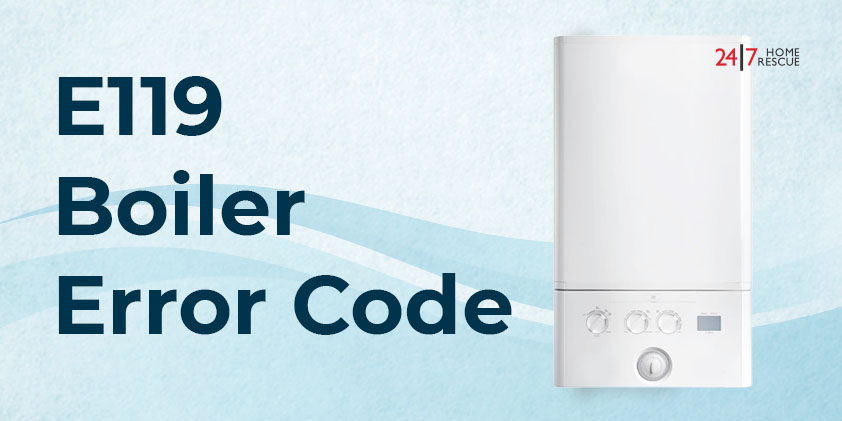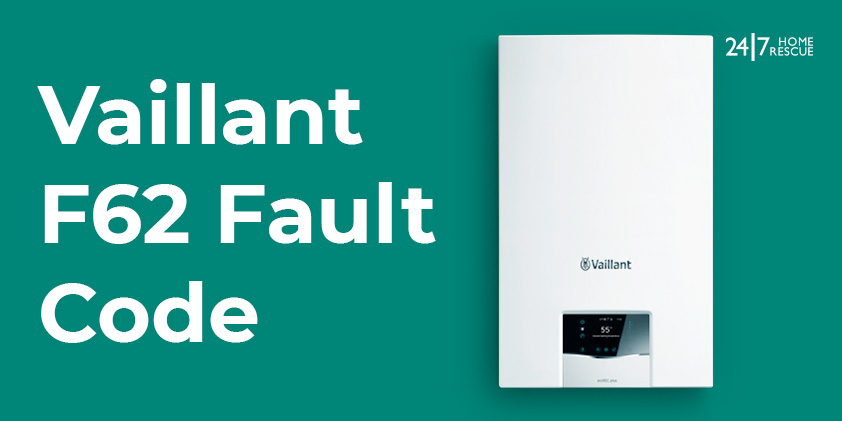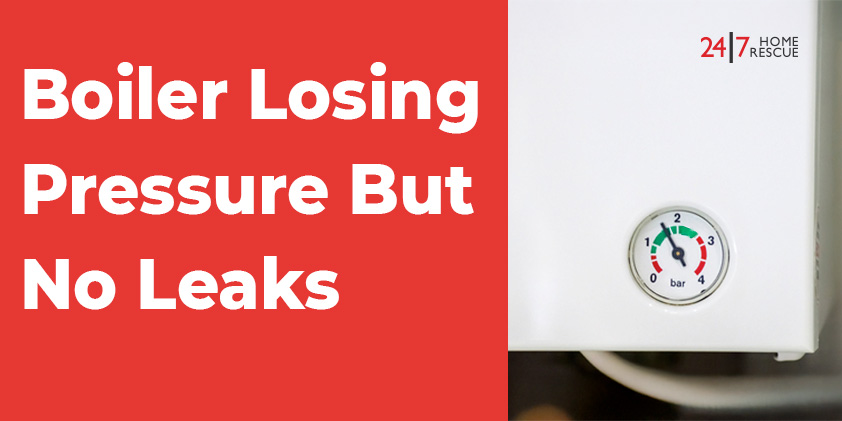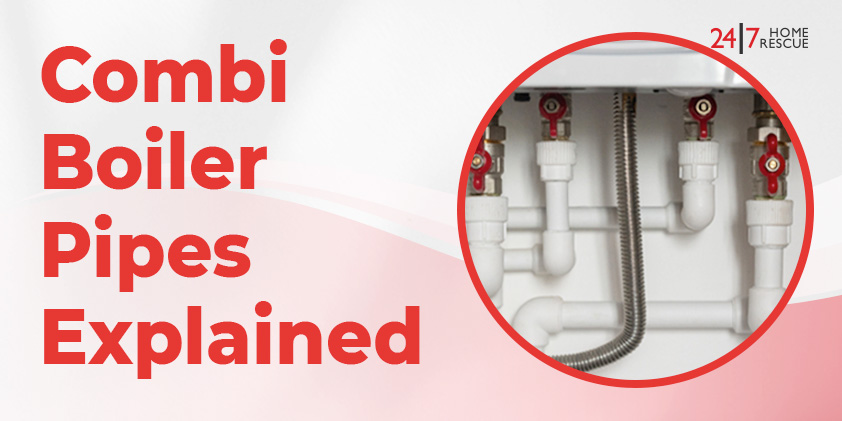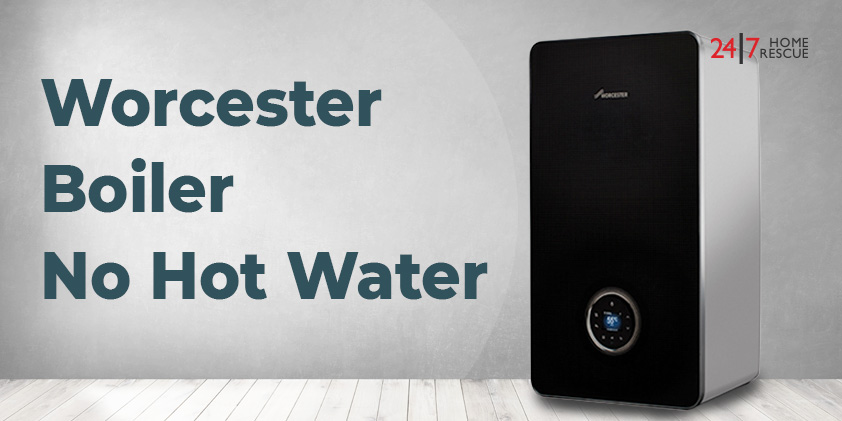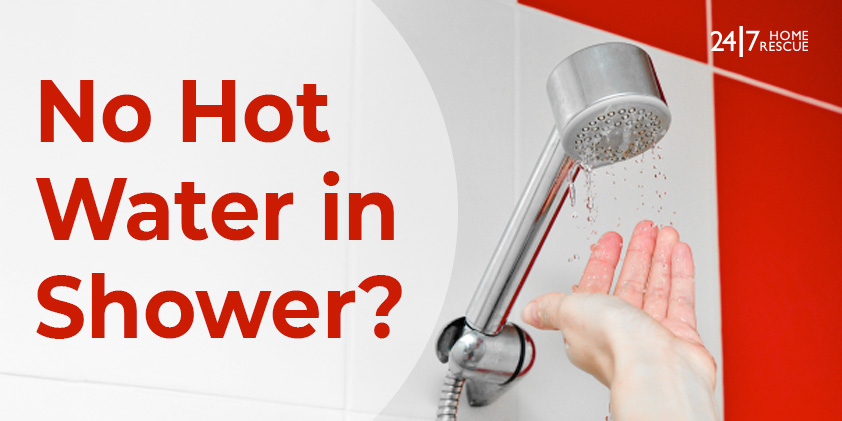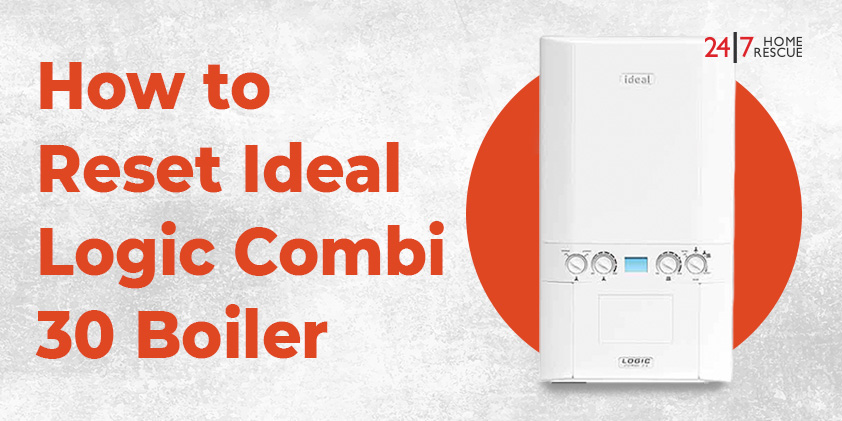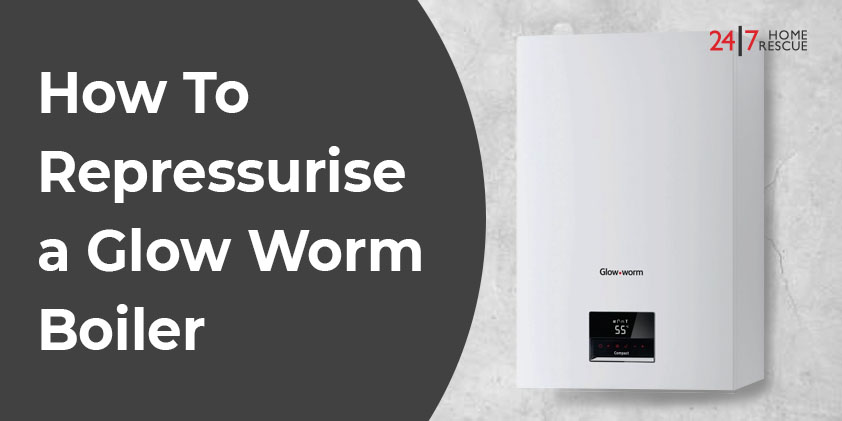
How to Prepare Your Boiler for Winter
When winter arrives, ensuring your home is warm, safe, and comfortable is essential. Your boiler is key to maintaining a reliable heating and hot water supply, and taking the time to prepare it now can prevent uncomfortable breakdowns and unsafe situations later.
Customers with 24|7 Home Rescue boiler cover can rest easy, knowing they can call an engineer for assistance and emergency. However, those without coverage may find it challenging to secure a prompt repair during winter’s peak, when demand for engineers is high.
So, what steps can you take to prepare your boiler for winter and avoid breakdowns when you need heat the most? To know about it, make sure you read the blog till the end!
1. Test Your Boiler Early

Most households only think about turning on the boiler for winter once the temperature drops. However, if you wait until the first freezing day, you may discover a fault too late. Instead, take a proactive approach and switch your boiler on in autumn. Let the radiators heat up. This early testing ensures that your system is working correctly and gives you time to arrange a repair before the rush, putting you in control of your home’s comfort.
2. Arrange an Annual Service

One of the most effective boiler tips for winter is to schedule an annual boiler service with a Gas Safe-registered engineer. This not only ensures that your system is running safely and efficiently but also instils a sense of security, knowing that your boiler is less likely to break down during cold weather.
Landlords are legally required to arrange annual gas safety checks, but homeowners often overlook this. Even if not mandatory, servicing is strongly recommended. A service can:
- Detect faults early
- Improve efficiency
- Prolong the lifespan of your boiler.
If you have boiler cover with 24|7 Home Rescue, servicing may be included as part of your policy.

Boiler Service
Ensure your boiler runs efficiently and safely with our professional boiler servicing. Regular maintenance will save you money in the long run and potentially prevent breakdowns.
3. Check Boiler Pressure

A quick and easy task is checking your boiler’s pressure gauge. The correct level is usually between 1 and 1.5 bar.
- If your boiler pressure keeps dropping, your heating may not work correctly.
- If your boiler pressure is too high, there could be a risk of leaks or damage.
You can adjust the pressure yourself using the boiler filling loop (consult your boiler manual), or call an engineer if you’re unsure.

Boiler Repair
Book your boiler repair service online and save time and effort. Our certified engineer will provide you with hassle-free assistance.
4. Bleed Your Radiators

Air can get trapped in your radiators over time, causing cold spots and making your boiler work harder than necessary. Bleeding your radiators releases trapped air, ensuring they heat up evenly.
After bleeding, don’t forget to recheck your boiler pressure, as it may drop slightly during the process. If you need assistance regarding bleeding your radiator, refer to our helpful guide on How to bleed a radiator– A Complete DIY Guide.
5. Check Thermostats and Timers

Your thermostat and timer are essential for controlling heating efficiently. Faults in these devices can lead to wasted energy or an under-heated home.
If your thermostat is in a cold spot (such as a hallway, attic, or near a window), it may cause the heating to switch on unnecessarily. During your annual service, an engineer can test your controls and suggest improvements, such as upgrading to a smart thermostat for better control.
Related Article: How Does a Thermostat?– The Complete Guide
6. Insulate Pipes

Frozen pipes are one of the most common winter boiler issues. When water freezes, it expands, which can block or burst pipes. To prevent this:
- Insulate exposed pipes, especially the external condensate pipe, with foam lagging.
- If your condensate pipe freezes, carefully thaw it using warm (not boiling) water.
Proper insulation not only prevents breakdowns but also reduces heat loss, helping lower energy bills.
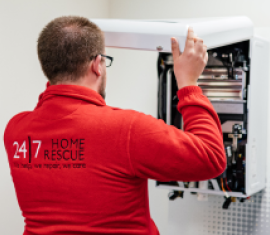
Boiler Insurance You Can Trust
Get boiler breakdown and landlord cover including free annual boiler service.
Choose your policy type
7. Consider a Powerflush
Over time, sludge and debris can build up in your central heating system, reducing efficiency. A professional central heating powerflush, a process that cleans your radiators and pipes by forcing water at high velocity through the system, removing blockages and improving circulation, can help. This makes your heating more effective and protects your boiler from strain.

Central Heating System
Keep your home warm and energy-efficient with our one-off central heating system servicing. Extend the life of your system, reduce energy bills, and avoid unexpected issues.
8. Set the Right Boiler Temperature in Winter

Your boiler’s flow temperature plays a significant role in efficiency and comfort. Many people leave it too high, wasting energy. As a general guide:
- For combi boilers, set the flow temperature to around 60°C for heating and 50°C for hot water.
- For system or conventional boilers, settings may vary, but keeping them moderate helps efficiency.
Adjusting to the right temperature in winter ensures warmth without unnecessarily high bills, giving you control over your energy usage and costs.
Conclusion
Preparing your boiler before winter isn’t complicated, but it can make all the difference when the cold sets in. By testing your system early, booking a service, insulating pipes, and setting the right temperature, you’ll avoid common problems and enjoy peace of mind.
If you want reliable protection, boiler cover from 24|7 Home Rescue ensures that an engineer is only a phone call away, with fast response times even during the busiest months.

Home Emergency Cover
Safeguard your property against unforeseen circumstances with Home Emergency Cover from 24|7 Home Rescue.
At 24|7 Home Rescue, we aim to keep our blogs accurate and helpful at the time of publication. However, details such as images, services, or product information may change. Content is for general information only and not professional advice. For the latest updates, please review our Terms & Conditions or contact us directly. 24|7 Home Rescue accepts no liability for actions based on outdated or incomplete content. Our team is always happy to help with any questions.
